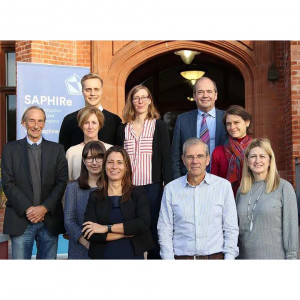 \
&
Contact us
\
&
Contact us
 \
&
Contact us
\
&
Contact us
This was 3 months ago
Locationonline
ProgrammesThe European Institute of Innovation and Technology tries to bridge the gap between promising innovations and succesfull businesses. It consists of nine sectoral subdivisions, with EIT Food being particularly important for the Belgian market, as its headquarters are based in Leuven. To explain what exactly they are doing the EIT food will organize a webinar on the 8th of april in which they will provide more in particular:
More information about the event can be found on this webpage.
We offer news and event updates, covering all domains and topics of Horizon Europe, Digital Europe & EDF (and occasionally, for ongoing projects, Horizon 2020).
Stay informed about what matters to you.
By signing up, you can opt in for e-mail notifications and get access to
a personalised dashboard that groups all news updates and event announcements in your domain(s).
Only for stakeholders located in Flanders

The Department of Economy, Science and Innovation of the Flemish government coordinates the Horizon 2020 Coordination and Support Action SAPHIRe, which started on 1 December 2018. The aim of the project is to secure the adoption of personalised medicine in all European regions, including sparsely populated and remote regions and regions with different innovation capacities.
The activities of SAPHIRe are complementary to the smart specialisation partnership on personalised medicine – S3P4PM, which is also coordinated by the Department of Economy, Science and Innovation.